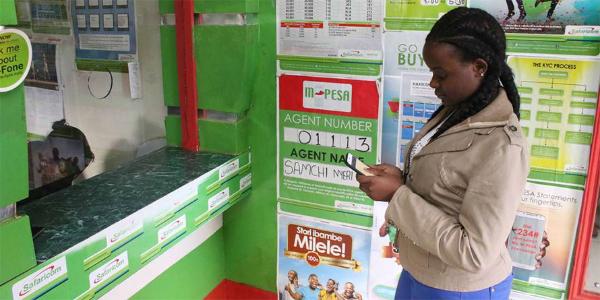
Kenyan mobile network Safaricom has come under heavy scrutiny, over the recent power outage that occurred on the mobile money platform M-Pesa.
Recall that M-Pesa was hit with downtime on Monday, inconveniencing millions of customers who rely on it for payment transactions.
The outage saw millions of Kenyans who rely on M-Pesa for their financial transactions such as paying for utilities like electricity, fuel, and parking fees, or purchasing items such as food and medicine in supermarkets and chemists stranded with unpaid bills.
Tekedia Mini-MBA edition 14 (June 3 – Sept 2, 2024) begins registrations; get massive discounts with early registration here.
Tekedia AI in Business Masterclass opens registrations here.
Join Tekedia Capital Syndicate and invest in Africa’s finest startups here.
This prompted the Communications Authority of Kenya (CA) to summon the company to shed light on the recent outage, which has rocked businesses and inconvenienced customers.
Safaricom, which has 27.7 million subscribers, explained in a statement that they suffered a technical issue and their services were being restored. The company said in a public notice that the outage had been fully resolved as of Tuesday, apologizing to its users.
The company wrote,
“We experienced service intermittency with PayBill payments that resulted in some transactions not being completed on M-Pesa. The technical issue has since been resolved, and we continue to monitor the services closely. We apologize for any inconvenience that this disruption may have caused.”
Meanwhile, this is not M-PESA’s first outage. The mobile money went down for over two hours in early January 2024 and had a service outage in July 2023. These recurring outages affect the platform functionalities such as sending and receiving money, linked bank services, and other payment services.
Thousands of Kenyans have begun to feel discouraged from using the mobile service to make transactions because of the outages. However, other competing products can not match M-PESA’s market dominance, which would have given Kenyans more options.
The Implication of M-Pesa Outages on The Kenyan Economy
M-Pesa is seen as a de facto national payment system in Kenya, which makes it a critical part of the economy. The mobile money platform accounts for about 99.9 percent of the value of mobile money transactions, underlining the entrenchment of the platform in the economy of the East African country.
M-PESA has been the market leader in Kenya, accounting for 96.5% of the market in 2023, followed by competitors Airtel Money and T-Kash. By March 2023, M-PESA had processed 26 billion transactions.
The mobile money parent company Safaricom owns the majority of the mobile infrastructure in Kenya, so it enjoys an almost total monopoly over the mobile payments space.
Considering that 43% of Kenya’s GDP flows through M-Pesa, a prolonged interruption would substantially disrupt economic activity.
This means that incessant outages on the service would bring transactions to a grinding halt, freezing commerce in its tracks. Also, businesses, large and small, would face crippling losses, and the flow of money would stagnate. The ripple effect would reverberate through supply chains, potentially dampening the entire economic engine.
A 2016 Treasury report and subsequent Treasury reports have often warned that a collapse of the M-Pesa service could, for instance, cause widespread disruption in the economy. This saw M-Pesa classified as a systemic risk to the country’s economy, underlining its crucial role.
While M-Pesa’s ubiquity may seem like a monopoly, it’s crucial to remember that competition does exist in the mobile money space. However, M-Pesa’s first-mover advantage and deep integration into the Kenyan economy have given it a substantial lead.
This however raises concerns about potential anti-competitive practices and the need for a leveled playing field for other players.
The Central Bank of Kenya, among other government agencies, has been attempting to make other mobile money products attractive to Kenyans. However, the development has yet to pick up as locals still prefer using the M-Pesa platform.
It is worth noting that the M-Pesa downtime serves as a stark reminder of the vulnerability inherent in such a centralized system.
This calls for the need for Diversification of Service Providers, to foster a competitive mobile money landscape that can reduce reliance on a single platform and provide users with alternative options in case of outages.



